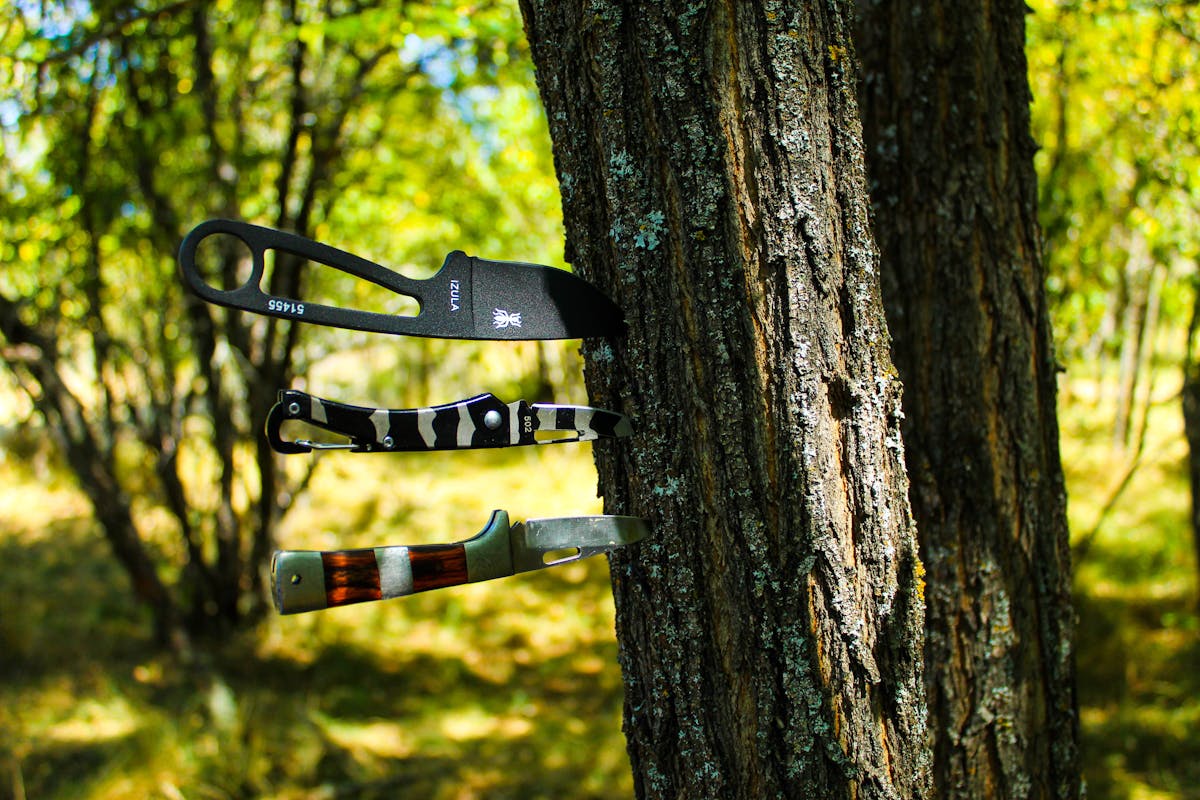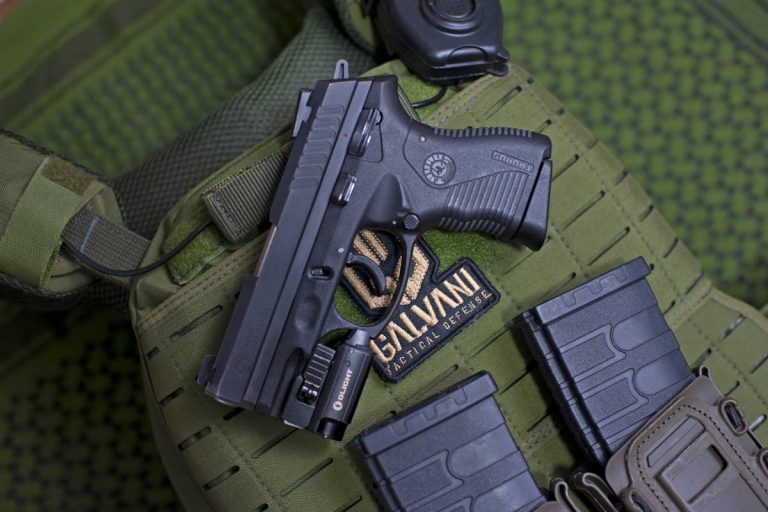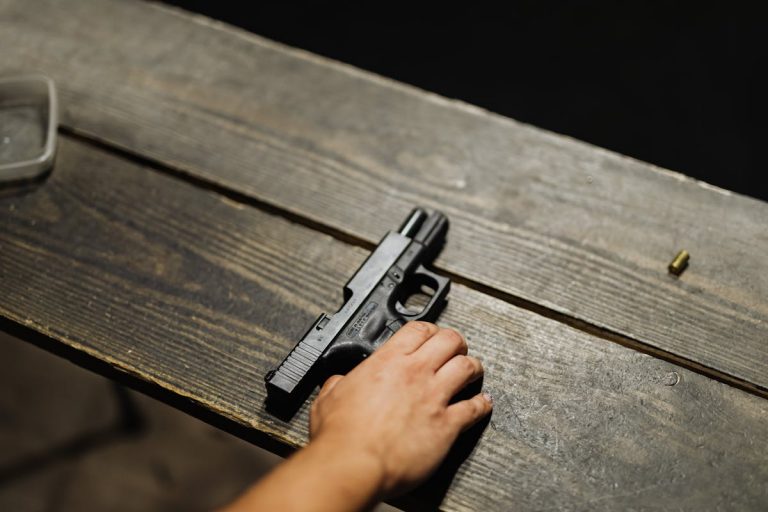Understanding the intersection of personal rights and legal restrictions is a nuanced task, particularly when it involves weapon possession. For prohibited possessors, such as individuals with felony convictions or those under protective orders, the question arises: Can I still legally carry a knife? This query opens a complex discussion around the laws governing knife possession and their variations across jurisdictions. What are the consequences for prohibited possessors found with a knife? Are there any exceptions to these rules? Let’s explore these pressing issues further.
Understanding Prohibited Possession
A considerable number of individuals may find themselves unknowingly labeled as a prohibited possessor. The implications of being classified as such can be far-reaching and impactful, involving not only legal but also social and professional repercussions.
Prohibited possession implications extend beyond the mere denial of certain rights. They may affect an individual’s employment opportunities, personal relationships, or even their ability to travel. Prohibited possessors face limitations and restrictions on owning, using, and carrying various types of objects deemed as potential weapons, including knives.
Understanding one’s rights as a prohibited possessor is vital. The rights of prohibited possessors vary based on several factors, such as the nature of the crimes committed, the jurisdiction in which they live, and the specific terms of their prohibition. In certain cases, prohibited possessors may still be able to carry knives, but this depends on the type of knife and local regulations.
It is important to consult with a legal professional to fully understand the complexities of this issue. This will guarantee that prohibited possessors exercise their rights effectively, while also adhering to the law, thereby avoiding further legal complications.
Legal Definitions of Knives
In the domain of law, the definition of what constitutes a knife can vary considerably from one jurisdiction to another. This variance is largely due to the diverse types of knives available and how they are used within those jurisdictions. Knife classifications play a significant role in this legal interpretation, often influencing whether a knife is deemed a tool or a weapon.
The legal definitions of knives can encompass a wide range of bladed instruments. This can include, but is not limited to, folding knives, fixed-blade knives, switchblades, butterfly knives, and disguised knives. Each of these types of knives are classified based on their unique characteristics, such as blade length, blade shape, mechanism of opening, and concealment capabilities.
In some jurisdictions, the definition of a knife is broader, encapsulating instruments that may not traditionally be considered knives, like multi-tools or certain types of razors. Ultimately, the legal definition of a knife is multifaceted and complex, dictated by the specifics of local, state, and federal law. Understanding these definitions is essential for any individual, particularly a prohibited possessor, to navigate the legal landscape of knife possession and use responsibly.
State Laws on Knife Carrying
Proceeding to the next subtopic, “State Laws on Knife Carrying”, it becomes imperative to comprehend the varying legislation across different jurisdictions. Each state in the U.S. has its unique restrictions and permissions pertaining to knife possession, which greatly impact the rights and responsibilities of knife owners. In the subsequent sections, we will thoroughly explore these laws, putting a spotlight on the complexities of knife carrying regulations.
Understanding Knife Laws
Maneuvering the complex landscape of state laws on knife carrying requires a nuanced understanding of legal terms and stipulations. State laws particularly focus on two areas: knife types and their use in self-defense.
Knife types regulated by states vary markedly. Some laws regulate specific types, like switchblades, gravity knives, and balisongs, while others focus on blade length. Understanding the distinctions is essential to legal knife carrying. For example, carrying a switchblade might be legal in one state, but illegal in another. Similarly, states differ in regards to blade length. What might be considered a legal tool in one jurisdiction could be viewed as an illegal weapon in another due to a few fractions of an inch.
Self-defense laws also play a key role. Some states allow carrying knives expressly for self-defense, while others have stringent laws against it. It’s important to understand that even if a knife type is legal, its use in self-defense might not be.
Understanding knife laws is not just about knowing what’s legal or illegal. It’s about understanding the intricacies of the laws, which are often shaped by local cultural, historical, and social contexts.

Knife Possession Restrictions
Having established the importance of understanding knife laws, it is pertinent to highlight the restrictions on knife possession that different states impose. Each state has its unique rules and regulations concerning knife types, sizes, and reasons for carrying, including self-defense.
Some of the common state-imposed restrictions include:
- Knife Types: Certain types of knives, like switchblades, gravity knives, or ballistic knives, are often prohibited due to their potential misuse.
- Knife Length: Many states have restrictions on the blade length. For example, a knife with a blade length greater than a certain measurement might be considered a weapon.
- Carrying Method: Some states may allow you to carry a knife openly but prohibit concealed carry.
- Intent and Self Defense: The intention behind carrying a knife can affect its legality. Using a knife primarily for work or everyday tasks is generally acceptable, while carrying one expressly for self-defense can sometimes lead to legal issues.
Federal Laws and Prohibited Possessors
Shifting from state to federal law, it is essential to understand the scope and implications of federal regulations, specifically pertaining to prohibited possessors. We will first define this term, and then provide an overview of federal knife laws, highlighting the pertinent statutes and their interpretations. We will conclude with a discussion on the potential consequences for non-compliance, underscoring the seriousness of these regulations.
Defining Prohibited Possessors
There exists a group of individuals in the United States, defined by federal law, who are prohibited from possessing firearms. These people, known as prohibited possessors, face significant legal implications if found in violation of these regulations. The law is clear and unambiguous in its delineation of who falls into this category.
Prohibited possession, as outlined by federal statutes, generally extends to four primary classes of individuals:
- Individuals convicted of crimes punishable by imprisonment for over one year, excluding state misdemeanors.
- Individuals who are fugitives from justice.
- Individuals who are unlawful users of, or addicted to, any controlled substance.
- Individuals adjudicated as mentally defective or committed to a mental institution.
These guidelines serve as a broad framework for understanding prohibited possession. Each category has further intricacies and specifics, subject to interpretation and application by the legal system. The consequences of falling into one of these categories can be severe, often including heavy fines, imprisonment, and long-term loss of certain civil liberties. It is essential for individuals to understand these legal implications and guarantee they remain on the right side of the law.
Knife Laws Overview
While the topic of prohibited possessors primarily revolves around firearms, it’s essential to recognize that similar restrictions can apply to other weapons, such as knives. Federal laws govern the legality of carrying knives, with certain restrictions depending on the type of knife, its blade length and the purpose for which it is used.
Knife safety is an important aspect of these laws. For instance, switchblades, gravity knives, and other automatic knives are often regulated due to safety concerns. Each state also has its own laws regarding the possession and carrying of knives, often more stringent than federal laws. It is incumbent upon potential knife owners to familiarize themselves with both federal and local laws to guarantee compliance.
For those considering a knife for self-defense purposes, it’s important to understand that the concept of ‘prohibited possessor’ can extend to knives as well. Certain individuals, such as convicted felons, people under protective orders, or those with certain mental health conditions, may be legally barred from possessing a knife. Understanding these laws is essential not only for legal compliance but also for guaranteeing personal and public safety.
Consequences for Non-compliance
A considerable number of people may be unaware of the serious consequences that stem from non-compliance with federal laws regarding prohibited possessors and carrying of knives. The implications of such non-compliance extend far beyond a mere slap on the wrist and may result in severe legal ramifications.
The following bullet points highlight some of the key consequences of non-compliance:
- Prohibited possessors found carrying a knife could face serious jail time, with sentences varying depending on the state and the nature of the crime.
- In addition to imprisonment, non-compliant individuals may be liable for hefty fines, further exacerbating the financial strain on their lives.
- The individual could lose their civil rights, such as the right to vote or own firearms.
- A conviction can lead to a criminal record, which can greatly hamper future employment prospects and overall quality of life.
Impact of Criminal Records
Criminal records often cast a long shadow on a person’s life, greatly influencing their social, economic, and personal prospects. Being labeled as a prohibited possessor due to a criminal record can limit one’s options in various life aspects, including employment opportunities, housing, and even personal safety measures such as carrying a knife for self-defense.
The criminal implications of being a prohibited possessor may extend beyond the initial offense, as it can result in an individual being scrutinized more heavily by law enforcement and society. This could potentially lead to an increased likelihood of further criminal charges, should the person be found in possession of a knife or any other prohibited items.
On the aspect of personal safety, being a prohibited possessor can lead to a significant disadvantage. In situations where self-defense is needed, the individual may not have access to the same tools as those without a criminal record. This could leave them vulnerable and unable to adequately protect themselves or their loved ones.
Exemptions for Prohibited Possessors
Traversing the legal landscape of prohibited possession, several exemptions may provide relief to those labeled as prohibited possessors. These exemptions categories, often seen as legal loopholes, allow particular individuals to carry a knife legally, despite their prohibited status. A thorough understanding of these exemptions can be pivotal in determining one’s legal rights and responsibilities.
The following are four notable categories of exemptions:
- Antique Firearms: This exemption applies to those in possession of firearms manufactured before 1898 or replicas of such firearms. Often, these are non-utilitarian items, used primarily for collection or display.
- Restoration of Rights: Certain jurisdictions may restore the rights of prohibited possessors after a specified period post-conviction, provided they meet certain criteria.
- Pardons and Expungements: Individuals who have their convictions pardoned or expunged can potentially regain their rights to possession.
- Juvenile Adjudications: In many jurisdictions, individuals with juvenile adjudications aren’t considered prohibited possessors once they reach adulthood.
These exemptions, however, vary widely from one jurisdiction to another and should be explored in consultation with a legal expert to ascertain the applicability to individual circumstances.
Alternatives to Knife Carrying
Even with the exemptions in place for prohibited possessors, it remains imperative for individuals to explore alternatives to carrying a knife. Alternative weapons can offer a viable solution for self-defense, while mitigating legal risk.
A myriad of self-defense tools are available on the market, each with their respective advantages and considerations. Pepper spray, for instance, is a non-lethal solution which can incapacitate an attacker at a distance. It is legal to carry in most jurisdictions, but users must be aware of wind direction to avoid self-contamination.
Tactical pens are another alternative weapon, designed for both writing and self-defense. Made of robust materials, they can withstand impact and provide a means of protection without attracting unwanted attention. It is, however, necessary to learn how to use them effectively.
Stun guns are powerful self-defense tools, delivering a high-voltage shock to deter attackers. Despite their efficacy, their legality varies widely, necessitating careful research.
Personal alarms, meanwhile, emit a loud noise to attract attention and scare off potential threats. They are generally unrestricted and easy to use.
Seeking Legal Advice
Maneuvering through the intricate terrain of weapons laws can be an intimidating task for any individual. This is particularly true for those who are classified as prohibited possessors. In such cases, seeking legal advice becomes paramount. Legal consultations can clarify the complex dimensions of these laws, shedding light on your rights, responsibilities, and potential risks.
Professional guidance can be particularly beneficial in understanding the following aspects:
- The exact implications of your prohibited possessor status in relation to knife carrying
- The specific laws and regulations that apply in your jurisdiction
- Possible legal alternatives to carrying a knife for self-defense
- The potential consequences of violating these laws
Frequently Asked Questions
Can I Carry a Knife for Self-Defense if I Have a Hunting License?
Yes, you can carry a knife for self-defense if you have a hunting license. However, it’s important to comply with local hunting regulations and self-defense laws to guarantee legal use and possession.
What Penalties Might I Face if Caught Carrying a Knife as a Prohibited Possessor?
Penalties for possession of a knife by a prohibited possessor vary by jurisdiction. Legal consequences may include fines, imprisonment, or both. It’s critical to consult local laws or a legal expert for accurate information.
Are There Different Rules Pertaining to Carrying Knives for Culinary Professionals?
Yes, different rules often apply for culinary professionals. These professional exemptions are governed by specific culinary regulations, which typically allow chefs and other culinary workers to carry knives for work-related purposes. Always consult local laws for specifics.
Does the Type of Knife I Carry Affect My Status as a Prohibited Possessor?
Yes, the type of knife can impact your status as a prohibited possessor. Different knife types have various legal classifications. It’s essential to understand local laws and regulations before carrying any type of knife.
Can a Prohibited Possessor Legally Own Antique or Collectible Knives?
Antique and collectible knife ownership legality varies by jurisdiction for prohibited possessors. It’s critical to consult local and state laws or legal counsel to guarantee compliance and avoid potential legal repercussions.


